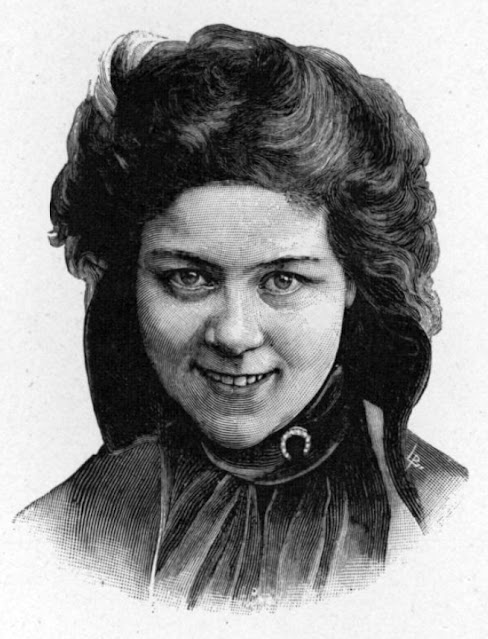Loie Fuller was an actress and dancer who was a pioneer of
both modern dance and theatrical lighting techniques. She choreographed and
performed dances in burlesque (as a skirt dancer),in vaudeville, and circus shows.
An early free dance practitioner,
Fuller developed her own natural movement and improvisation techniques, experimenting
with a long skirt, choreographing its movements and playing with the ways it
could reflect light.
Fuller came to the attention of Henry
Cyril Paget, 5th Marquess of Anglesey AKA Lord Paget nicknamed
"Toppy", a British peer who
was notable during his short life for squandering his inheritance on a lavish
social life and accumulating massive debts.
Paget, who adored being called "the
dancing marquess" in the press took Fuller’s dance one step more and came
up with his own version of the Butterfly Dance, wearing a voluminous robe of
transparent white silk would be waved like wings.
Paget was the eldest son of the
4th although rumors persisted that his biological father was the French actor
Benoît-Constant Coquelin. When his father died in 1898, he inherited his title
and the family estates (30,000 acres) with an annual income of about $20,000,000 in today’s value.
He quickly went about the business
0f spending every cent of his inheritance. He
renamed the family's country seat Plas Newydd as "Anglesey Castle"
and converted the chapel there into a 150-seat theatre, named the Gaiety
Theatre where he took the lead in opulently costumed productions ranging from
pantomime and comedy to performances of Oscar Wilde's An Ideal Husband and
Shakespeare's Henry V.
Not happy with that, he took his theatre company on tour around Britain and Europe. His wife obtained a decree of divorce the marriage was later annulled due to nonconsummation. He was okay with that since the end of his marriage gave Paget more freedom to enjoy his self-indulgent lifestyle.
By 1904, despite his inheritance
and income, Paget had accumulated debts a massive debt and was declared bankrupt. His
lavish wardrobe, particularly his dressing gowns from Charvet, and jewels were
sold to pay creditors.
Paget died in in 1905 Monte Carlo
following a long illness, with his ex-wife by his side. The London Times
reported that he was, wide and far, well liked by one and all and that despite his
oddities, never brought any harm to anyone but himself.






